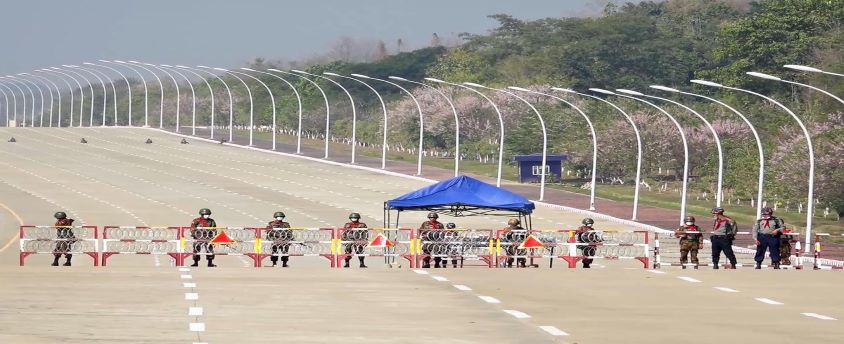The quest for hope in Myanmar
02, Feb 2023

Prelims level : International Relations
Mains level : GS-II International Relations | Effects of policies and politics of developing countries on India’s interest.
Why in News?
- Two years have passed since the military coup in Myanmar in 2021.
Highlights:
- Two years ago, in 2021 the military in Myanmar staged a coup and snatched power from the elected leaders. It derailed the limited democracy of the country, violating the 2008 constitution which the generals had given to the people.
- For more information on the coup, read here: Myanmar Coup d’état 2021
Current Scenario in Myanmar:
There are currently three camps in Myanmar:
- The military which is in power in major towns.
- The opposition called the National Unity Government (NUG) and its partners in the countryside.
- The ethnic groups on the geographic periphery. These groups are further divided into pro-military, pro-NUG, or neutral groups.
- Frequent clashes occur in several parts of Myanmar and there is widespread insecurity. The air force bombs the citizens, whereas people’s militias kill government soldiers and policemen.
- The possibility to hold dialogue is ruled out as there is no will for compromise and reconciliation between the military and the NUG. Both of them have termed each other as “terrorists”.
- Aung San Suu Kyi is serving a 33-year-long prison sentence in solitary confinement.
Economic situation:
- There is a sharp decline in the GDP of the country.
- Poverty, unemployment, and inflation have surged.
- Furthermore, the currency is witnessing a free fall.
Global Response:
- According to western countries, it is a direct cause of a repressive and power-hungry army suppressing the citizens and depriving them of their democratic rights. They condemned the act of the military at the United Nations (UN), imposed sanctions against the junta, and provide material assistance to the opposition.
- The UN Security Council adopted Resolution 2669 on 21st December 2022, expressing deep concern about the situation and urging the release of all political prisoners. There were abstentions only by China, Russia, and India. Despite this rare unity, the UN has failed to move the military.
- ASEAN with UN support is keen to play the role of mediator in Myanmar, but the Myanmar government refuses to cooperate with ASEAN. ASEAN’s ‘Five-Point Consensus’ formula as a way out was accepted by Myanmar in April 2021, but it was refused later.
- It should also be noted that ASEAN itself is suffering from internal disturbances and the new chair (Indonesia) realizes its limitations in handling the issue.
- China and Russia are strengthening their cooperation with the Myanmar government. Due to western sanctions on Russia, it has found a willing partner in Myanmar’s generals who need Russian arms, training, and political support. China also has extensive interest in the region ranging from economic to strategic domains.
India’s Stand:
- India desires a stable and prosperous Myanmar where democracy flourishes. However, its policy of dealing with the government of the day forces it to carry out business with the generals, discomforting the NUG.
- India also has security and economic interests. For instance, it needs assistance to tackle the Indian insurgent groups sheltered in Myanmar; handling its mega infrastructure projects requires the authorities’ cooperation; etc. Moreover, it aims to regulate China’s influence in Myanmar.
- India is in a dilemma, as India’s Myanmar experts offer contradictory advice:
- One group wants India to work with the present-day government.
- However, the other group advocates cooperating with the NUG and the ethnic groups. It also wants India to play the role of mediator.
- India has limited options and it believes that as the root cause of the political problem lies on Myanmar’s soil, it should be solved by the leadership of Myanmar.
Conclusion:
- The elections in Myanmar are due in August 2023. The possibility of holding free and fair elections is grim because of the various challenges like the opposition’s plan to disrupt it, the credibility of the elections itself, and the response of the military to the elections.






